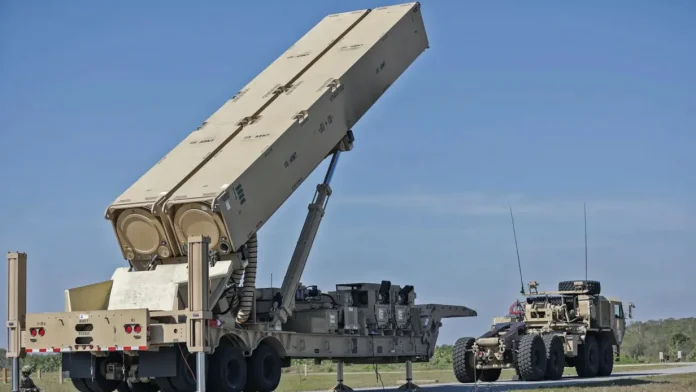For the first time since the 1980s, Berlin agreed to host three types of US missiles on its territory starting in 2026, but the move thrilled Germans, according to Responsible Statecraft.
An agreement between Washington and Berlin at the NATO anniversary summit in July calls for the deployment of The Tomahawk Block 4 cruise missile, with a range of just over 1,000 miles; the Standard Missile-6 (SM-6) for defence, with a range of 230 miles; and the Long-Range Hypersonic Weapon (LRHP) under development, with a projected range of over 1,800 miles.
Two of these missiles will be able to strike deep into Russia and reach Moscow. They are conventionally armed, but capable of carrying nuclear weapons. However, the agreement did not mention whether Germany would have any control over the missiles on its territory.
The deployment of Tomahawks and LRHPs also violates the Intermediate-Range Nuclear (INF) Treaty of 1987. The agreement prohibits the deployment of land-based missiles with a range of 500 to 5,000 kilometres (310 to 3,400 miles). However, in 2019, the Trump administration withdrew from INF and Russia suspended its compliance.
The German government’s latest agreement to deploy the new missiles was made without prior discussion in the Bundestag (German parliament) or any prior national debate. Meanwhile, Chancellor Olaf Scholz’s Social Democratic Party, the largest party in the ruling coalition, is split on the issue.
Most foreign policy representatives are in favour, whereas the national-oriented Alternative for Germany (AfD) and Sahra Wagenknecht Alliance (BSW) strongly oppose the move. According to the latest poll, 49 per cent oppose the missiles and 45 per cent are in favour. In eastern Germany, however, the percentage of those opposed to the treaty rises to 74 per cent.
What bothers Germans
Today, the Russian government has neither the intention nor the capability to launch a deliberate conventional attack on NATO. However, there is still an acute risk that an unplanned mutual escalation could lead to war.
The only reasonable purpose for authorising the deployment of Tomahawks and hypersonic missiles in Germany is to offer to abandon them again as part of a new nuclear arms reduction agreement with Russia. An agreement in which the US cancels the planned new missile deployment in Germany in exchange for Russia withdrawing its missiles based in Kaliningrad and Belarus would be of enormous benefit to Germany, Europe and the rest of the world.
The US withdrawal from the Anti-Ballistic Missile (ABM) Treaty in 2001 was followed by the deployment of US systems in Poland and the Czech Republic with the blatantly false claim that this was not directed against Russia, but rather against a hypothetical threat from Iran, Responsible Statecraft noted. Moscow threatened to respond by deploying new intermediate missiles, and did so while claiming to stay only within the INF framework.
As a result, Europe now has no missile limitation agreements at all, whereas not only is war raging in Ukraine, but Washington is considering bowing to pressure from Ukraine and the UK to allow the launch of British Storm Shadow cruise missiles deep into Russia.
Thus, the deployment of US missiles in Germany suggests that Washington is actively considering helping to launch US-made Ukrainian missiles at Russia. Russian intermediate missiles could hit Germany but not the US, whereas Berlin would have no control over US missiles on its territory. This raises concerns in the minds of many Germans.
